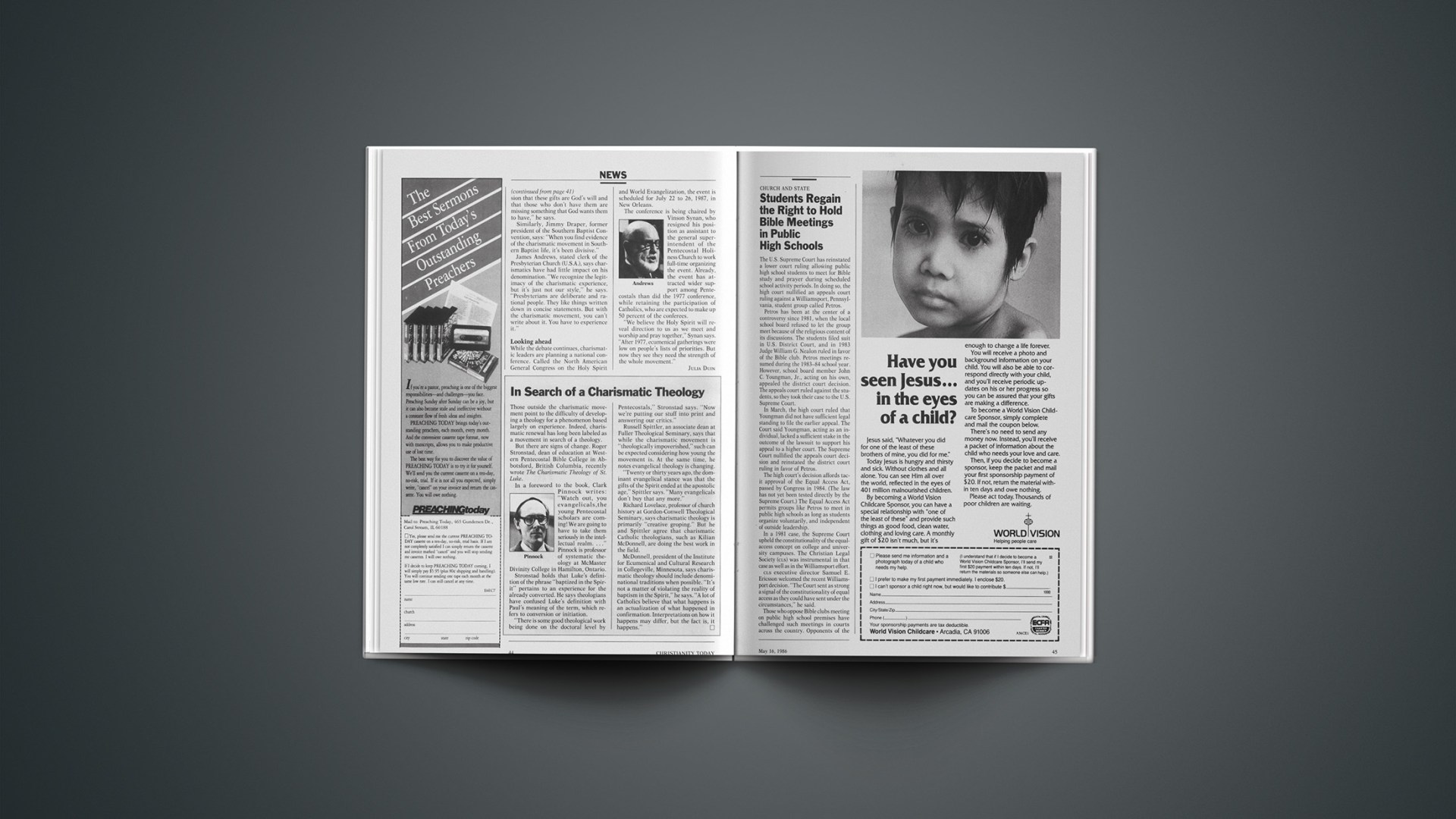The U.S. Supreme Court has reinstated a lower court ruling allowing public high school students to meet for Bible study and prayer during scheduled school activity periods. In doing so, the high court nullified an appeals court ruling against a Williamsport, Pennsylvania, student group called Petros.
Petros has been at the center of a controversy since 1981, when the local school board refused to let the group meet because of the religious content of its discussions. The students filed suit in U.S. District Court, and in 1983 Judge William G. Nealon ruled in favor of the Bible club. Petros meetings resumed during the 1983–84 school year. However, school board member John C. Youngman, Jr., acting on his own, appealed the district court decision. The appeals court ruled against the students, so they took their case to the U.S. Supreme Court.
In March, the high court ruled that Youngman did not have sufficient legal standing to file the earlier appeal. The Court said Youngman, acting as an individual, lacked a sufficient stake in the outcome of the lawsuit to support his appeal to a higher court. The Supreme Court nullified the appeals court decision and reinstated the district court ruling in favor of Petros.
The high court’s decision affords tacit approval of the Equal Access Act, passed by Congress in 1984. (The law has not yet been tested directly by the Supreme Court.) The Equal Access Act permits groups like Petros to meet in public high schools as long as students organize voluntarily, and independent of outside leadership.
In a 1981 case, the Supreme Court upheld the constitutionality of the equal-access concept on college and university campuses. The Christian Legal Society (CLS) was instrumental in that case as well as in the Williamsport effort.
CLS executive director Samuel E. Ericsson welcomed the recent Williamsport decision. “The Court sent as strong a signal of the constitutionality of equal access as they could have sent under the circumstances,” he said.
Those who oppose Bible clubs meeting on public high school premises have challenged such meetings in courts across the country. Opponents of the clubs say other students might believe the school is endorsing a particular religious group. That would be a violation of the First Amendment’s Establishment Clause, which prohibits state-sponsored religion, they argue. Opponents of equal access also have argued that the concept might cause students from minority religions to feel ostracized, or that groups like Petros could be a launch pad for evangelism in the hallways. Dangerous cults, they fear, could gain access to public high schools along with bona fide religious groups.
In 1983, U.S. District Court Judge Nealon rejected those arguments in the Williamsport case. “A number of students, acting voluntarily and free of outside influences, have requested permission to form a club and meet during the school’s activity period on the same basis as other student organizations,” Nealon wrote in his ruling. “The request was denied on the sole ground that the students wish to engage in religious speech.”
Nealon concluded that the school’s activity period was an “open forum.” Excluding the Petros club because of its religious orientation “has impermissibly burdened their free-speech rights,” he said. The judge said his decision “falls within the realm of what the Chief Justice called ‘a benevolent neutrality which will permit religious exercise to exist without sponsorship and without interference.’ ”
In reviewing the case, the Supreme Court commended Nealon’s “detailed and carefully written opinion.” Ericsson said the Court would not reinstate a lower-court ruling that is not solidly constitutional. He said any group of high school students has the legal right to request permission for a Bible club on school property within guidelines that apply to meetings of other student organizations.










